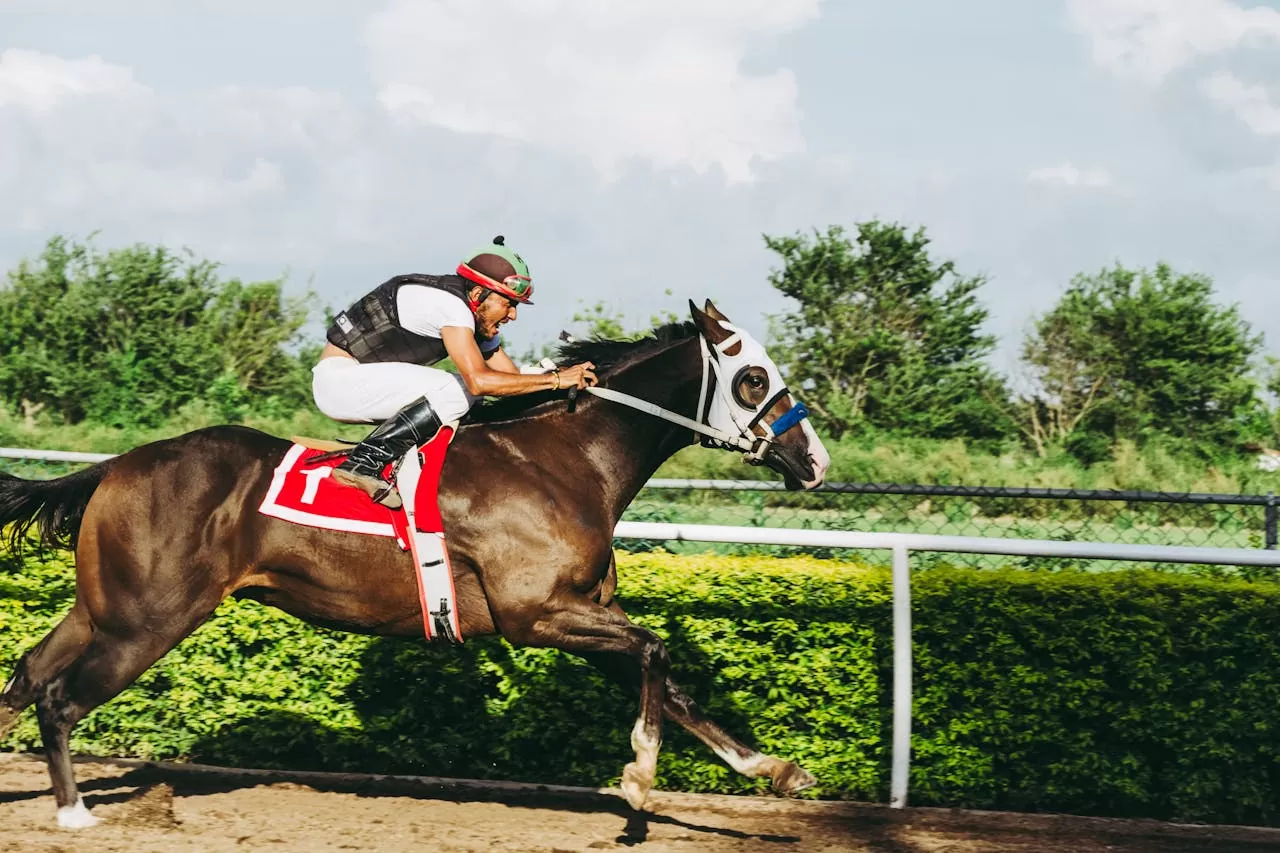The world of sports betting represents a global market valued at over $220 billion. But behind the colossal financial stakes lurks a dark side: match manipulation and fraudulent betting. As the American Gaming Association (AGA) recently reported a 43% increase in suspicious activity alerts during the first quarter of 2024, the question of sports integrity has never been more crucial. How are sports organizations and regulatory authorities fighting against these practices that undermine sports? What are the most resounding scandals that have shaken the industry in recent years? And most importantly, what measures are being implemented to protect honest bettors and the very essence of competition? Let’s dive into the underbelly of a phenomenon threatening the foundations of modern sports.
Cases That Made Betting Scandal History
The NBA Referee Scandal: Tim Donaghy’s Betrayal
The Tim Donaghy scandal remains one of the most damaging incidents in American sports history. In 2007, this veteran NBA referee admitted to betting on games he officiated and providing insider information to bookmakers over two complete seasons.
The FBI investigation revealed that Donaghy had influenced the outcome of numerous games, particularly by calling questionable fouls to favor certain teams. According to court documents, he correctly predicted the outcome of 80% of the games he officiated when placing bets, a statistically impossible rate without manipulation.
Sentenced to 15 months in prison, Donaghy claimed in his book “Personal Foul” that “75% of NBA referees bet and 30% manipulate scores to favor certain teams.” While the NBA dismissed these allegations as unfounded, the scandal forced the league to completely overhaul its approach to integrity.
NBA Commissioner Adam Silver, once a proponent of legalized sports betting, strengthened monitoring systems as states began legalizing sports wagering following the Supreme Court’s 2018 decision. In 2023, the league signed a partnership with Sportradar to monitor over 29,000 games annually using artificial intelligence capable of detecting abnormal betting patterns in real time.
College Basketball’s Point-Shaving Scams
College sports, particularly basketball, has proven vulnerable to betting scandals due to the amateur status of its athletes. The 1978-79 Boston College basketball point-shaving scandal stands as one of the most notorious cases in NCAA history. Players Rick Kuhn and Jim Sweeney conspired with mobsters to manipulate point spreads in at least nine games, ensuring the team won by fewer points than the betting spread.
More recently, the 2010 University of San Diego case involved ten individuals, including former players Brandon Johnson and Brandon Dowdy, who were charged with conspiracy to commit sports bribery. The scheme involved paying players to manipulate game outcomes while betting on these fixed contests. Johnson, USD’s all-time leading scorer, received a six-month prison sentence.
The NCAA has responded with comprehensive monitoring programs, including partnerships with sports data firms like Genius Sports. In 2023, the NCAA expanded its integrity team after investigating suspicious betting patterns in several Division I basketball games.
Dr. Rachel Newman Baker, NCAA Managing Director of Gaming Compliance, notes that “today’s digital betting landscape creates new vulnerabilities, especially with prop bets focused on individual player performance metrics that can be manipulated without affecting the game’s outcome.”
Baseball’s Black Sox Scandal: The Original Sin
While not involving modern sports betting platforms, the 1919 “Black Sox” scandal remains the foundation upon which all contemporary integrity measures are built. Eight Chicago White Sox players, including star outfielder “Shoeless” Joe Jackson, conspired with gamblers to throw the World Series against the Cincinnati Reds.
The players were allegedly motivated by their resentment toward team owner Charles Comiskey’s notoriously low salaries. Though acquitted in criminal court due to missing evidence, all eight received lifetime bans from baseball by Commissioner Kenesaw Mountain Landis, establishing the precedent that gambling corruption would carry the sport’s most severe punishment.
This watershed moment led to baseball’s strict anti-gambling policies, which remained inflexible until 2015 when MLB partnered with DraftKings. Even today, MLB maintains the strictest integrity protocols among major sports leagues, with Rule 21 prominently displayed in every clubhouse explicitly prohibiting betting on baseball games.
In 2023, MLB expanded these measures following gambling-related suspensions of players like Shohei Ohtani’s interpreter Ippei Mizuhara and Reds player manager Pete Rose, implementing advanced monitoring systems that track unusual betting patterns across legal sportsbooks nationwide.
Tennis Match-Fixing: The Challenger Tour Crisis
Tennis has faced persistent integrity issues, particularly at lower competitive levels. The 2016 investigation by BuzzFeed News and the BBC revealed widespread match-fixing allegations involving top-50 players, though many were never publicly identified or sanctioned.
The Tennis Integrity Unit (now ITIA) subsequently identified over 600 suspicious matches between 2017-2020, primarily in the Challenger and ITF circuits. The most significant case involved Argentine player Nicolas Kicker, ranked 84th globally, who received a six-year ban (later reduced) for fixing matches in 2015.
The vulnerability stems from tennis’s structure—over 3,000 professionals compete worldwide, but significant earnings are concentrated among top players. Those ranked below 150 often struggle to cover expenses, creating financial vulnerability that match-fixers exploit.
In March 2024, the ITIA announced lifetime bans for three American players involved in match-fixing at smaller tournaments. The organization now employs advanced monitoring technology that evaluates over 120 million data points per match to identify suspicious betting patterns and performance anomalies.
Mechanisms of Cheating in Sports Betting
Match-Fixing: Anatomy of Manipulation
Match-fixing represents the most direct form of manipulation in sports betting. This phenomenon relies on a simple but devastating principle: deliberately influencing the outcome of a sporting event to profit through betting.
According to the American Gaming Association, the mechanics typically follow this pattern:
- Criminal organizations identify vulnerable competitions (low media coverage, poorly paid players)
- They approach “insiders”: players, coaches, referees, or officials
- These accomplices agree to manipulate certain aspects of the game for payment
- Massive bets are placed on predetermined outcomes
The most vulnerable sports are those where a single individual’s action can influence the result (tennis, snooker) and second-tier competitions where salaries are modest. In 2023, GLMS (Global Lottery Monitoring System) reported 727 suspicious betting alerts, with 65% concerning soccer, 18% tennis, and 8% basketball.
A typical case is “spot-fixing,” where only a specific aspect of a match is manipulated (number of yellow cards, corners, etc.), making detection more complex as it doesn’t necessarily affect the final result.
Courtside Betting: The Time-Delay Advantage
“Courtside betting” or “court-siding” constitutes a sophisticated form of fraud exploiting the time delay between live action and its television broadcast or consideration by betting operators.
Accomplices present in stadiums instantly transmit information about decisive actions (goal, foul, injury) to bettors. These bettors can then place their wagers before bookmakers adjust their odds, benefiting from an undue advantage of a few seconds.
At the 2023 U.S. Open tennis tournament, security officials ejected several individuals using concealed communication devices to relay point-by-point information to outside associates. These operations typically involve multiple people: spotters inside the venue, runners transporting information beyond security perimeters, and bettors executing wagers.
Major leagues have implemented “guard delays” (up to 10 seconds for certain tennis events) and prohibited electronic device usage in certain stadium areas. The NFL has invested in mobile signal jammers in strategic sectors of its stadiums, while the NBA employs undercover security personnel specifically trained to identify court-siding operations.
Data Infiltration and Algorithm Hacking
The digital era has given rise to a sophisticated new form of fraud: infiltrating bookmakers’ computer systems to manipulate odds or gain an unfair advantage.
In 2019, an Eastern European criminal organization successfully hacked the data feeds of several major betting operators. By inserting an “artificial delay” of a few seconds in information transmission, they could bet knowing certain actions’ outcomes in advance. This type of attack generated estimated losses of $28 million before detection.
More recently, in October 2023, FanDuel identified an attempt to use artificial intelligence to predict minor tennis match results, based on unauthorized exploitation of players’ biometric data obtained via connected devices.
To counter these threats, the industry is investing heavily in cybersecurity. Sportradar, a global leader in sports integrity, has developed the UFDS (Universal Fraud Detection System) that analyzes in real-time more than 12 billion datasets to identify abnormal betting patterns using machine learning algorithms.
How the Industry Fights Fraud
Monitoring Organizations and Their Methodology
Facing increasingly sophisticated fraud, the sports betting ecosystem has developed a network of monitoring agencies with increasingly advanced methods.
Internationally, the IBIA (International Betting Integrity Association) coordinates efforts between operators, federations, and law enforcement. Its early warning system reported 192 suspicious cases in the first half of 2023, thwarting several manipulation attempts even before bets were placed.
In the United States, the Sports Wagering Integrity Monitoring Association (SWIMA) brings together major operators like DraftKings, FanDuel, and BetMGM to share information about suspicious betting patterns. Their methodology relies on three pillars:
- Algorithmic monitoring of abnormal odds variations and betting volumes
- Behavioral analysis of bettors (risk profiles, betting patterns)
- Data cross-referencing with international systems like GLMS and Sportradar
Alert indicators include disproportionate wagers on secondary markets (number of cards, corners), abnormal volumes on competitions usually less popular, or significant bets from specific geographic areas.
Since 2022, the adoption of artificial intelligence technologies has revolutionized this monitoring. The “Hawk-Eye Innovations” system, initially designed for refereeing, now analyzes player behaviors to detect statistically improbable anomalies (repeated errors, sudden intensity drops).
International Cooperation: Macolin Convention and Operation SOGA
The fight against match-fixing requires international coordination, notably through the Macolin Convention, the first binding legal instrument against sports competition manipulation.
Adopted by the Council of Europe in 2014 and entered into force in 2019, this convention has influenced practices globally, including in the U.S. where sports integrity groups follow similar principles:
- Creation of national coordination platforms
- Harmonization of criminal legislation
- Systematic information exchange between authorities
- Educational programs for athletes and officials
In parallel, Interpol coordinates Operation SOGA (SOccer GAmbling), an international initiative targeting criminal networks involved in illegal betting. Its latest phase (SOGA VIII) during major sporting events resulted in dismantling 4,210 illegal betting operations, arresting 6,552 suspects, and seizing more than $8.1 million.
In the United States, the Unlawful Internet Gambling Enforcement Act (UIGEA) and the Wire Act provide federal frameworks against illegal gambling, while the Professional and Amateur Sports Protection Act (PASPA) repeal in 2018 allowed states to develop their own regulatory frameworks for legal sports betting, many including specific provisions against manipulation.
Athlete Education and Prevention
Prevention constitutes an essential pillar in fighting competition manipulation. Sports federations have developed educational programs for athletes, who are particularly vulnerable to manipulators’ approaches.
The NFL, NBA, MLB, and NHL have implemented comprehensive integrity training programs. The NFL’s “Protect the Shield” initiative, launched in 2018, has educated over 12,000 players, coaches, and staff members. These sessions address legal and disciplinary risks, corruptors’ approach techniques, and reporting procedures.
In tennis, the ITIA has required all professional circuit players since 2023 to complete an annual educational module on integrity. “Integrity officers” are present at major tournaments to answer athletes’ questions and receive confidential reports.
The effectiveness of these preventive approaches is measured in figures: according to the AGA, 72% of approach attempt reports now come from athletes themselves, compared to 28% in 2018.
These programs rely on testimonials from former athletes trapped by manipulation networks, such as former NBA player Jack Molinas, who regularly speaks at training centers to share his experience of being approached by malicious bettors.
Technologies Serving Sports Integrity
Artificial Intelligence to Detect Suspicious Betting
Artificial intelligence represents the cutting edge in fighting fraud in sports betting. AI systems analyze millions of transactions in real-time to identify suspicious patterns imperceptible to the human eye.
The BFDS (Betting Fraud Detection System) deployed by U.S. sports leagues uses deep learning algorithms to simultaneously analyze:
- Betting volumes and distributions on more than 30,000 annual games
- Odds variations across more than 200 global operators
- Correlations between bets and unusual on-field behaviors
This technology identified 61% more suspicious cases in 2023 than with previous systems. Specifically, AI can spot micro-phenomena such as abnormally high wagers on a yellow card at the 75th minute of a minor league game, even when these bets are split among several accounts to go unnoticed.
DraftKings and FanDuel have invested in proprietary AI systems that evaluate the “manipulation probability” of each sporting event offered for betting and can automatically remove a game from the program in case of a critical alert.
Blockchain for Securing Betting Transactions
Blockchain technology is emerging as a promising solution to enhance transparency and traceability in the sports betting ecosystem.
Several American operators are experimenting with blockchain-based platforms to:
- Immutably record each betting transaction
- Trace the origin of funds used
- Create a history consultable by regulatory authorities
The American startup BetTrust, launched in 2023, offers a solution allowing regulators to instantly access all betting transactions on a given event, even if conducted with different operators, thus facilitating the detection of suspicious patterns.
Blockchain also offers solutions to fight money laundering via sports betting. Chainalysis collaborates with major U.S. operators to develop tools to trace suspicious financial flows, particularly those transitioning through cryptocurrencies.
According to a KPMG study published in March 2024, the adoption of blockchain technologies could reduce undetected fraud cases in the gambling industry by 43% by 2027.
Biometric Systems and Identity Verification
Sports betting fraud often involves identity theft or the use of multiple accounts. To counter this threat, operators are deploying cutting-edge biometric technologies.
U.S. states with legal sports betting increasingly require operators to verify customer identities through reliable processes. Several approved biometric solutions analyze:
- The match between the bettor’s selfie and their ID
- The authenticity of official documents via invisible markers
- Suspicious behaviors such as multiple registration attempts
Some operators go further by implementing behavioral recognition technologies that detect users’ “virtual fingerprints” (typing style, mouse movements, etc.) to identify fraud attempts by organized networks using different identities.
Additionally, advanced geolocation systems ensure bettors don’t use VPNs to circumvent territorial restrictions and access markets where betting is prohibited or less monitored.
Common Mistakes and Misconceptions About Match-Fixing
Sports Actually Most Affected by Fraud
Contrary to popular belief that often targets football (soccer) as the main sport affected by manipulation, reality is more nuanced. According to the 2023 IBIA report, while football represents the largest volume of suspicious cases (42%), other disciplines show proportionally higher manipulation rates.
Tennis ranks second with 33% of alerts, but these figures must be put into perspective with the number of events: for about 2,000 weekly professional football matches, there are nearly 5,000 tennis matches. The proportion of alerts per match is therefore significantly higher in tennis.
According to U.S. Integrity, a leading American monitoring firm, the most vulnerable sports are:
- Table tennis (particularly minor competitions in Asia)
- Tennis (Challenger and ITF circuits)
- Second-tier basketball (regional leagues, lower divisions)
- Esports, where regulation remains embryonic
- Soccer, but mainly in lower divisions and minor championships
This reality is explained by structural factors: insufficient athlete remuneration, low media coverage limiting detection, and often absence of rigorous controls in minor competitions.
Signs of a Potentially Fixed Match
Identifying a potentially manipulated match requires spotting certain warning signals, both on the field and in betting markets.
On the field, behavioral indicators include:
- Unusual and repeated errors by experienced players
- Manifestly inconsistent referee decisions
- Visible lack of intensity or commitment
- Opportune injuries at key moments
- Statistically aberrant performances (usually disciplined player suddenly receiving multiple cards)
On the betting side, suspicious signals include:
- Sudden and unexplained odds movements
- Abnormally high volumes on secondary markets
- Unusual concentration of wagers on a specific outcome
- Large bets from regions with no obvious connection to the event
- Temporary suspension of betting by several operators simultaneously
Nevertheless, caution is advised: these signals don’t constitute definitive proof and can sometimes be explained by legitimate factors (injury information, weather conditions, etc.).
Professional systems like Sportradar’s analyze more than 600 variables per game to calculate a “manipulation probability” and only trigger alerts when this score exceeds a critical threshold, thus limiting false positives.
How to Report Suspicious Behavior
When facing manipulation suspicions, each actor in the sports ecosystem has a role to play in reporting suspicious behavior.
For American bettors, several official channels exist:
- The reporting form on state gaming commission websites (anonymity possible)
- The SWIMA direct line for integrity concerns
- The “Report Game Integrity” mobile app launched in 2023 by major operators
For athletes, coaches, and officials, specific procedures have been established:
- Confidential reporting platforms within each federation
- The IBIA alert line accessible 24/7 in 22 languages
- Designated integrity referents in each professional club
These reports are processed according to a strict protocol ensuring informants’ confidentiality and rapidly evaluating allegations’ credibility. In 2023, 78% of investigations opened by U.S. gaming authorities resulted from external reports, demonstrating the importance of collective vigilance.
It’s crucial to note that simply being approached by a manipulator, even without following through, must be reported. Authorities recommend preserving all evidence (messages, recordings) that might help identify criminal networks.
Betwiseup Editorial Opinion
At a time when sports betting has never been more accessible, the question of competition integrity becomes fundamental. Our analysis reveals a paradox: while detection and prevention mechanisms are becoming more sophisticated, fraud techniques are also gaining in sophistication.
The emergence of technologies like blockchain and artificial intelligence offers promising perspectives but cannot replace human vigilance and collective responsibility. Recent scandals remind us that manipulation now affects all levels of competition, from amateur tournaments to prestigious competitions like major leagues.
The United States, with its evolving regulatory framework since PASPA’s repeal in 2018, presents a complex landscape where each state develops its own approach. However, the coordination between federal agencies like the FBI, state regulators, and private integrity monitors creates a robust defense system.
For athletes and bettors alike, education remains the best bulwark against fraud. Knowing the risks, identifying suspicious approaches, and knowing how to report them constitutes the first line of defense for an integrity-focused sports ecosystem.
Sports integrity isn’t just a technical or legal question: it’s a cultural issue that engages all actors, from institutions to simple fans. This is the condition under which the thrill of sports betting can continue to accompany, without perverting, the sporting spectacle we love.
FAQ: Everything You Need to Know About Sports Betting Fraud
What is match-fixing and how can I recognize it?
Match-fixing refers to the deliberate manipulation of a sporting event to influence betting outcomes. Revealing signs include unusual odds variations, inexplicably poor performances by certain players, or abnormal betting volumes on secondary markets. If you notice several of these elements simultaneously, the event might be compromised.
What penalties do individuals face for match manipulation in the United States?
In the United States, sports manipulation is prosecuted under various federal statutes, including wire fraud (18 U.S.C. § 1343), which carries penalties of up to 20 years in prison and substantial fines. Additionally, the Sports Bribery Act (18 U.S.C. § 224) specifically targets individuals who influence sporting contests through bribery, with penalties of up to 5 years imprisonment. Athletes also risk lifetime bans from their sports.
How do betting operators detect suspicious behavior?
Operators use several detection mechanisms: algorithms monitoring abnormal odds variations and volumes, artificial intelligence systems analyzing betting behaviors, and information-sharing platforms between operators. This data is cross-referenced with field observations (unusual sporting performances) to evaluate the manipulation probability.
As a bettor, can I be involuntarily involved in fixed betting?
Yes, it’s possible to bet on a manipulated event without knowing it. However, your responsibility will generally not be engaged if you didn’t participate in the manipulation. On the other hand, winnings from bets on events proven to be fixed can be canceled by operators, according to their terms and conditions.
Which sports and competition levels are most affected by manipulation?
Contrary to popular belief, it’s not always major competitions that are most targeted. Manipulators primarily target second-tier competitions, less mediated and where athletes are less well-paid. Tennis (minor circuits), table tennis, regional soccer, and esports are among the most vulnerable disciplines.




